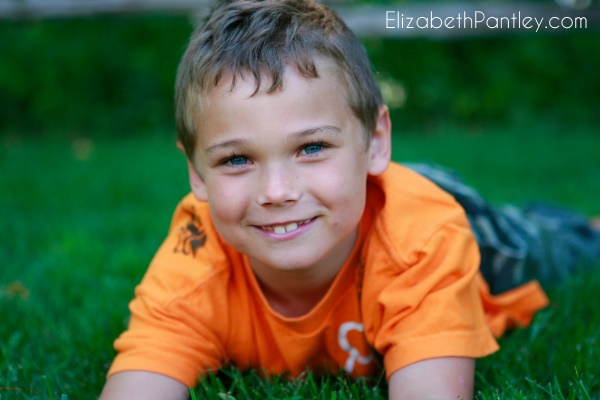
Many children get into the habit of negative self-talk. This internal dialogue can cause children stress and anxiety and it can make them focus on possible disasters such as…
What if I hate my new teacher? What if I get hurt and no one is there to help me?
What if something bad happens to Daddy while he is away?
Anxious children tend to rehearse these thoughts in their mind - over and over again - until they become overcome with fear and worry. Negative self-talk can escalate easily, causing anxiety to increase and any challenge then becomes more of a struggle for the child. All of this is why it is very important to take the time to work with your child to make his self-talk more positive.
Don’t Waste Imaginations on Worry
Children have incredible imaginations, which can be a wonderful thing in many situations. However, it can become difficult for children when their imagination runs wild and it enhances the negative thoughts. The first step to helping your child relax is to teach her that not all of her thoughts are factual or accurate. You will want to find a time where your child is relaxed, comfortable, and feeling safe so that you can teach her this concept. You can have a conversation about the topic where you use various examples to show how thoughts can be distinctly from reality.
Be very gentle when explaining this idea to your children because you want them to see your point without thinking that you are discarding their emotions and thoughts.
Examples may include:
Thinking about flying doesn’t cause you to take off into the air.
Thinking about a pony doesn’t make one appear right here in the kitchen.
Thinking about something bad happening does not cause it to happen.
After introducing this concept to your child, you can explain that she has the ability to change the way that she thinks. You will be able to show her that she can control her own negative thoughts by acknowledging them when they pop up and then making a conscious effort to change the direction of the thought.
Focus on Solutions
We all tend to focus on our problems - children and adults alike. We review them, rehearse them, and dissect them. You can teach your child that there will always be problems throughout life, but the powerful savior is that there are also solutions. And the solutions are where we should put our focus.
If your child is worried about making friends at his new school, he might be thinking...
I can’t do this.
I miss my old friends.
I won’t like my teachers.
I’m going to hate my new school.
Instead of letting your child dwell on these worries, teach her how to problem-solve. Have a conversation about all of the ways that she can make new friends, meet new teachers, figure out the layout of the new school, etc. Have her focus on the actions and positive aspects of the change instead of the negatives.
Create Positive Note Cards
Something as simple as creating positive note cards with your child can have a large impact. It gives you the opportunity to spend quality time together and discuss positive self-talk. These cards will nudge your child to focus on the positives as he goes about his day, and he can customize them to whatever concern is currently worrying his mind.
I will be fine all day at school.
I can make new friends today.
I have learned new things before, and I can learn today too.
Establish Healthy Habits
I’m sure we have all known adults that still wallow in negative thinking, but you have the opportunity to change that pattern for your own child. Redirecting thoughts in positive ways is an extremely valuable life skill that gives your child a chance at a happier, brighter future, which is exactly what we want for our children.
For more parenting tips see The No-Cry Discipline Solution



























